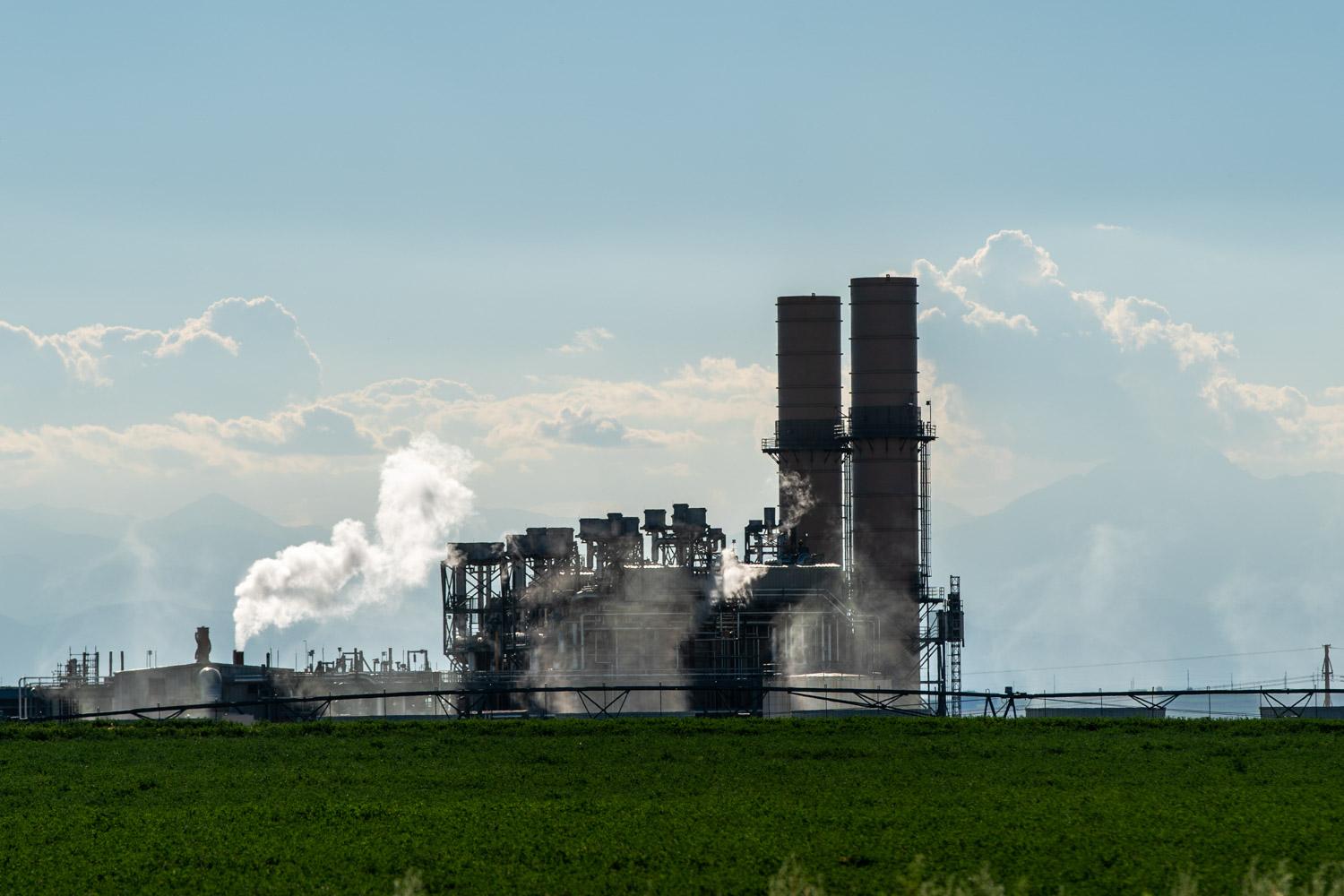
Colorado legislative leaders announced plans to form a joint select committee to investigate the root causes of rising energy bills on Thursday.
The news comes as many Colorado families struggle to pay their heating costs, which have doubled or tripled for some households compared to last year. A state analysis found a colder-than-normal winter and a spike in natural gas prices are the main factors pushing up prices.
But state Senate President Steve Fenberg, a Democrat who represents Boulder, told CPR News the six-member committee won't focus on those issues alone. It aims to compile a more detailed picture of what's driving up prices.
In addition, he hopes the bipartisan panel will question something more fundamental: how Colorado regulates monopoly utility companies like Xcel Energy.
"That's the question we want to ask ourselves," Fenberg said. "Is the system we've set up — the system we've created — is it the same system we still need today?"
A spokesperson for Fenberg's office said committee appointments will be announced next week. Under legislative rules, the leaders of the state House and state Senate will each choose two out of the six members. Minority leaders will decide who fills the remaining two seats.
Since Democrats hold wide majorities in both chambers, they'll also dominate the joint select committee. It's currently unclear when the panel will hold its first meeting.
Besides investigating a recent rise in energy costs, the committee could question a long tradition of regulating gas and power companies as monopolies.
Colorado's approach to utility companies is a product of the early 20th century. While some policymakers at the time feared monopolies, they recognized building power plants and transmission lines required an incredible amount of capital. In addition, it didn't make sense for multiple companies to compete over the same set of customers.
Their compromise was to allow companies to hold a monopoly over a specific area while operating under strict regulations. In exchange for exclusive access to customers, a company could only raise prices and build projects with the direct approval of Colorado’s Public Utilities Commission.
Other restrictions limited when companies could make money for their shareholders. Under the system, a utility could bill customers for day-to-day operating costs—like delivering electricity and paying workers—but couldn't charge anything more than what they spent.
Regulators only allow regulated utilities to turn a profit when they build new infrastructure, like utility poles, power plants or new transmission lines. During the Progressive Era, the arrangement was seen as a way to connect more people to gas and power systems without allowing companies to exploit a captive set of customers.
State Senate President Fenberg says the bargain made sense in the past, but some reforms are likely necessary to protect ratepayers.
Fenberg said the select committee should consider if the current structure creates the right incentives. By exclusively allowing a profit on construction projects, he said, companies have become far too inclined to new build power plants, transmission lines and wind turbines.
"We should be asking ourselves if it's still the right arrangement or if the return should be more connected to performance," Fenberg said. "Should it be less about how much you can build and more about the service you provide to customers?"
Fenberg said the committee might also consider ways to help businesses and households rapidly move away from natural gas appliances to electric alternatives, which could insulate them from volatile commodity markets. Gov. Jared Polis directed his administration to take similar action last week.
Another option could be adding more competition to the electricity market. California pioneered the approach in 2002, allowing local governments to band together to buy electricity directly from wholesale suppliers.
Leslie Glustrom, a founder of Boulder-based Clean Energy Action and long-time critic of Xcel Energy, said the approach — known as community choice aggregation — uses market forces to discourage power companies from raising prices. In addition, it gives communities a direct route to benefit from the falling price of renewable energy.
"That's the opposite of what Xcel wants to do. It wants to keep charging us more for a product that keeps costing less," Glustrom said.
The Colorado Public Utilities Commission held a public hearing on the idea last year. While many testified in support, some environmental groups and the Colorado Energy Office worried it could reduce demand for large-scale renewable energy projects that have already won approval.
Other Xcel Energy critics worry Colorado Democrats might not examine their own role in propping up monopolies— and driving up energy prices.
Jon Caldara, the president of the libertarian-leaning Independence Institute, said the committee shouldn't neglect the role of state laws, like renewable energy standards.
"Legislature, investigate yourselves," Caldara said
Statehouse Democrats have expanded laws to require utility companies to shift from fossil fuels to get more of their power from wind and solar, including a bill codifying Xcel Energy's goal to provide 100 percent carbon-free electricity in Colorado by 2050.
Caldara wants voters to weigh in on another approach to reign in power and gas companies. Last year, he pushed for a ballot initiative to require investor-owned utilities to return 5 percent of their profits to Colorado ratepayers.
Caldara acknowledges his organization is partially financed by fossil fuel interests. He dropped the ballot bid due to the high cost of collecting signatures, which he says could have been avoided if those companies contributed more to the effort. "If they were smart, they'd really fund us," he said.
He now plans to try to get a similar measure before voters in 2024.









